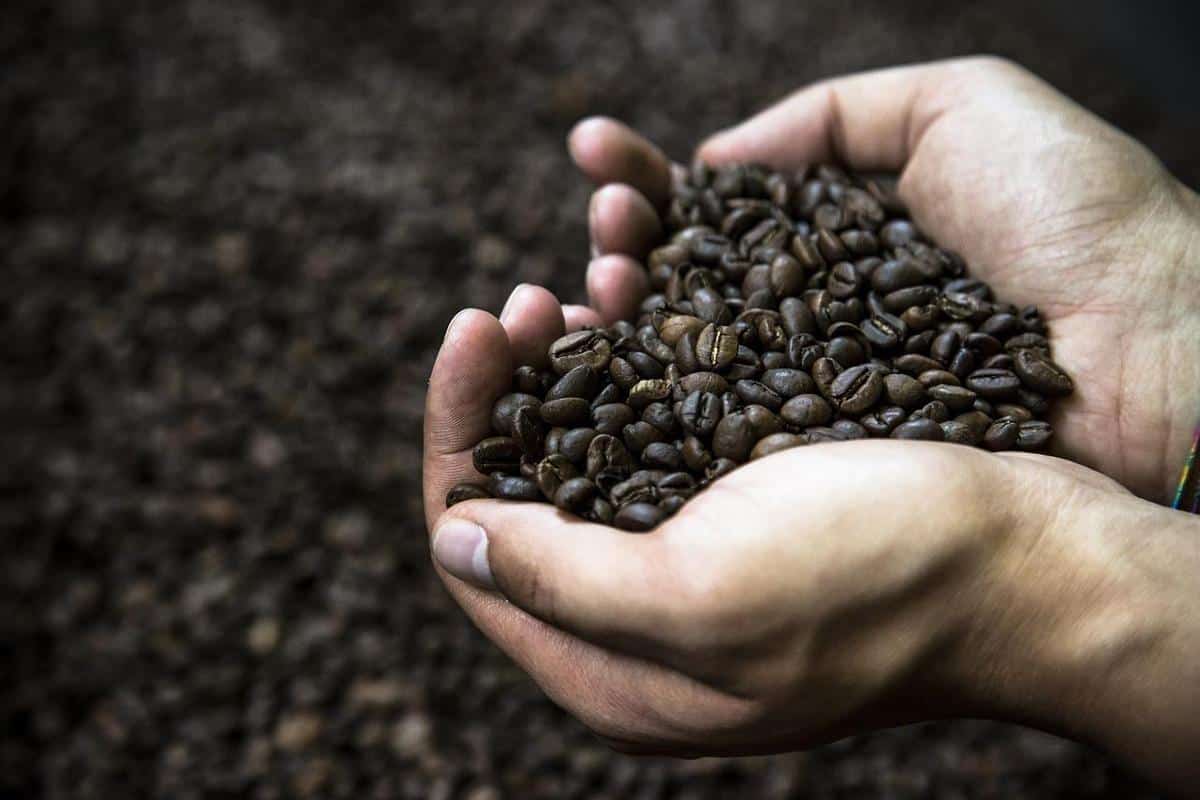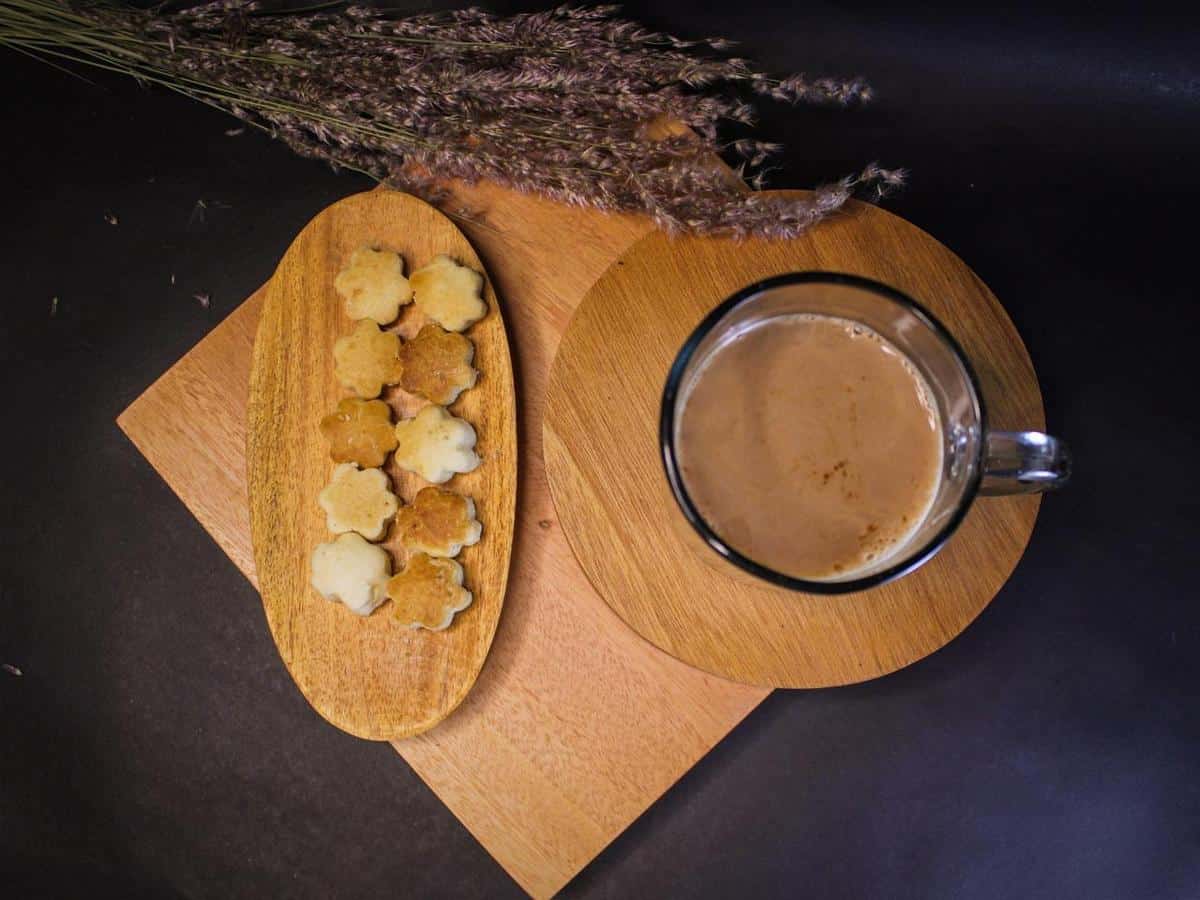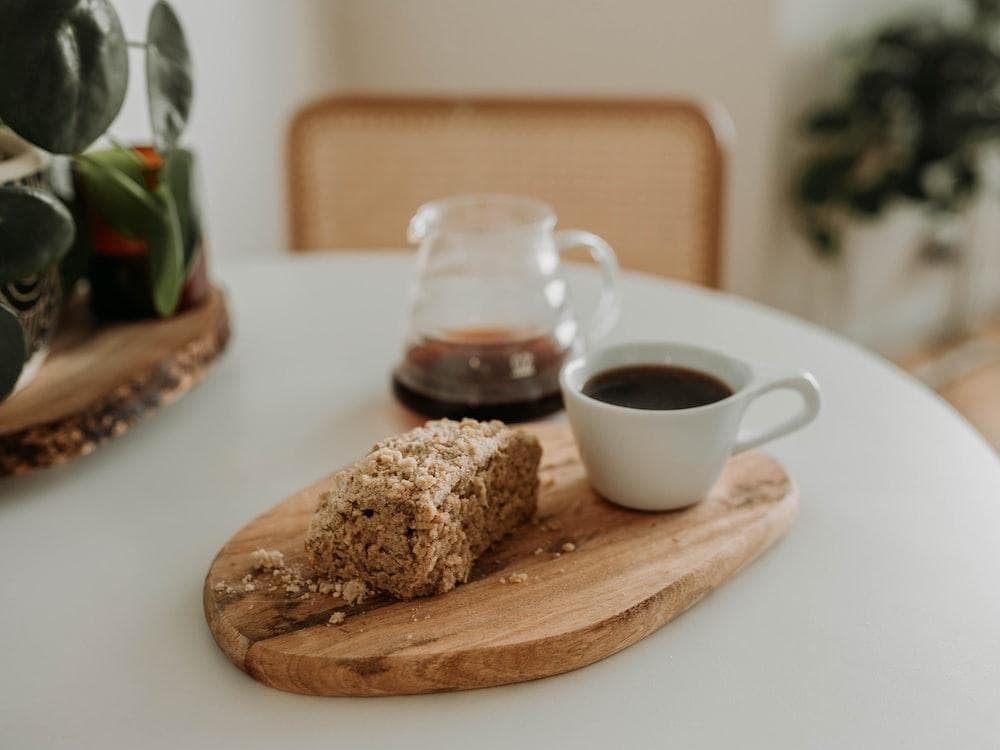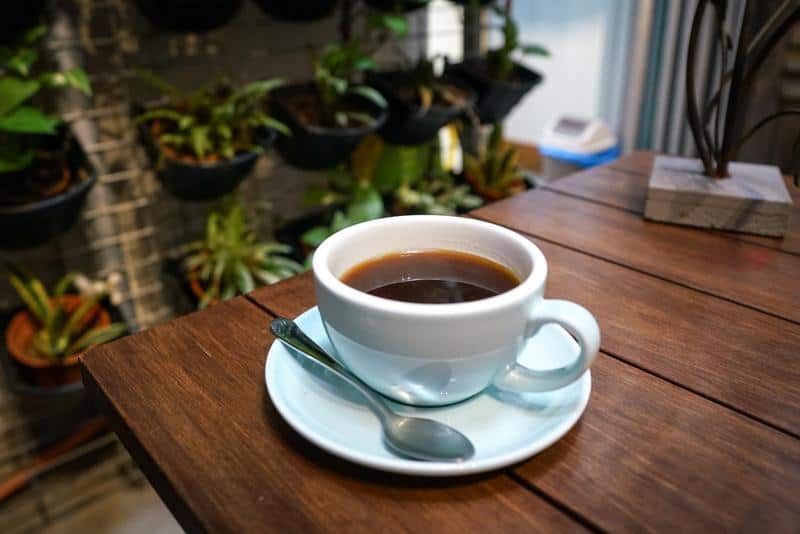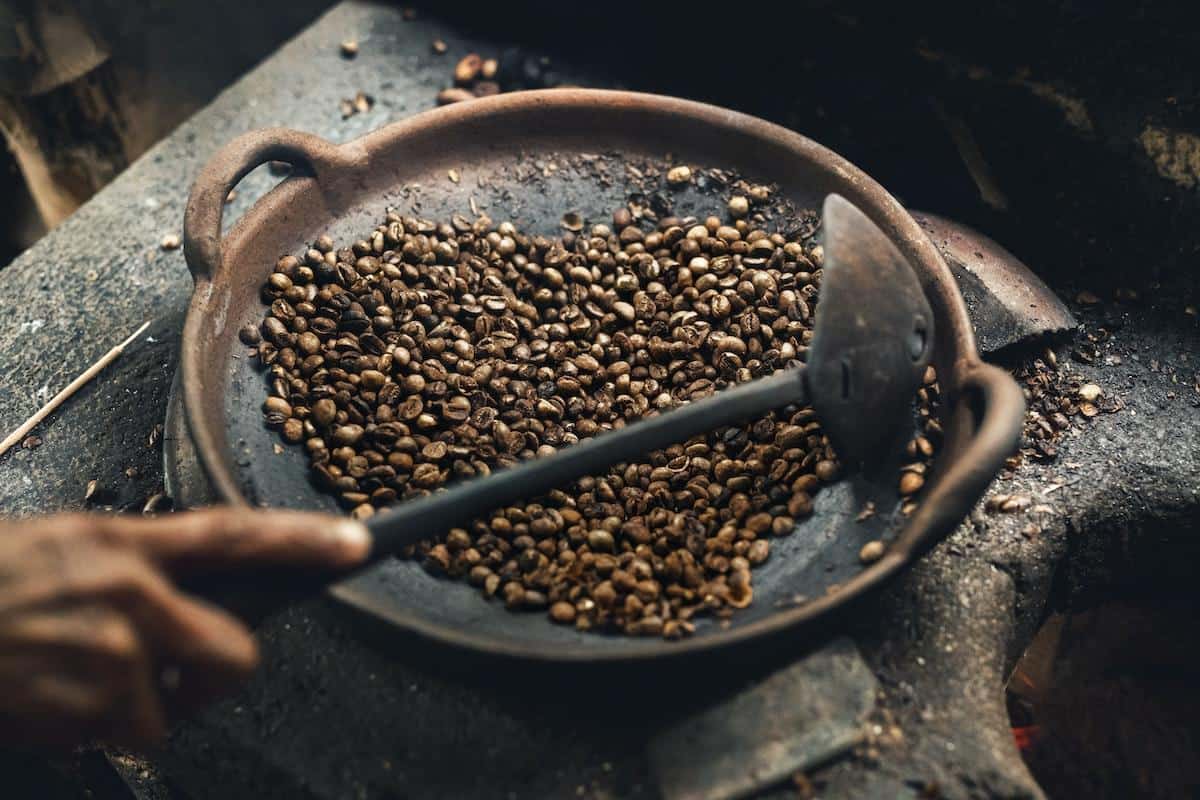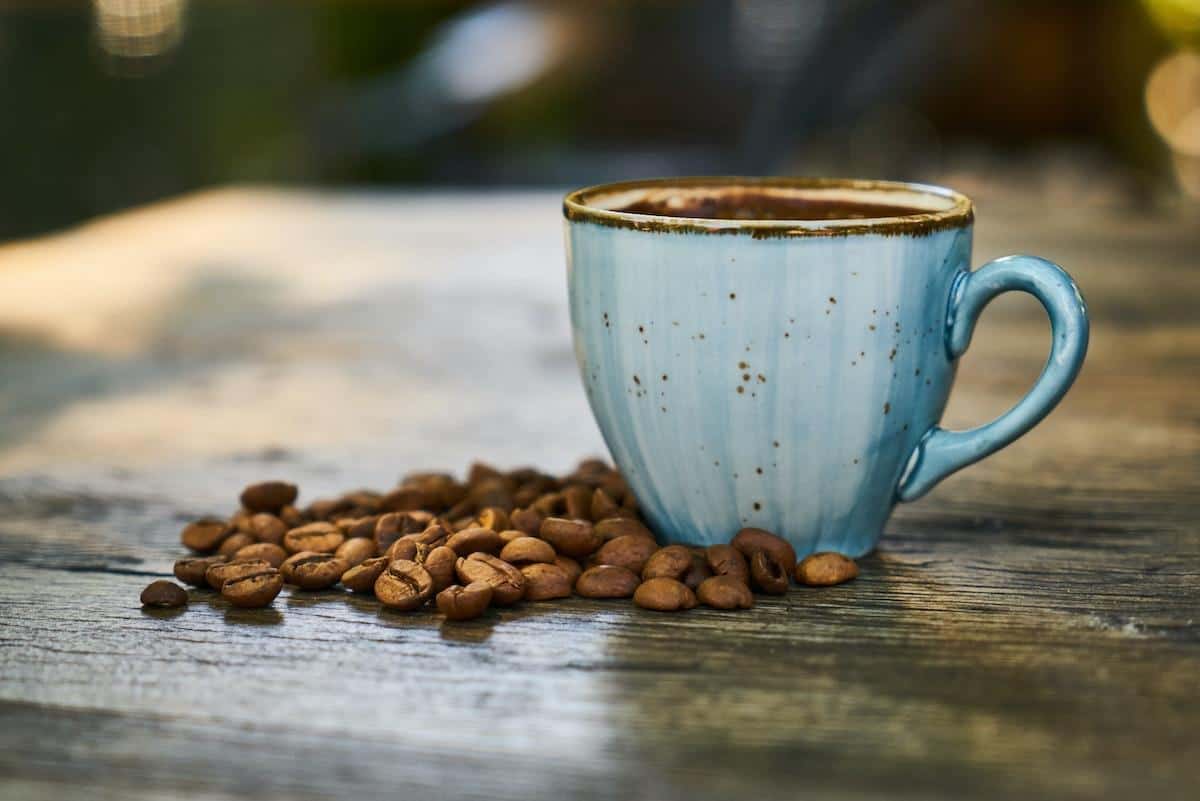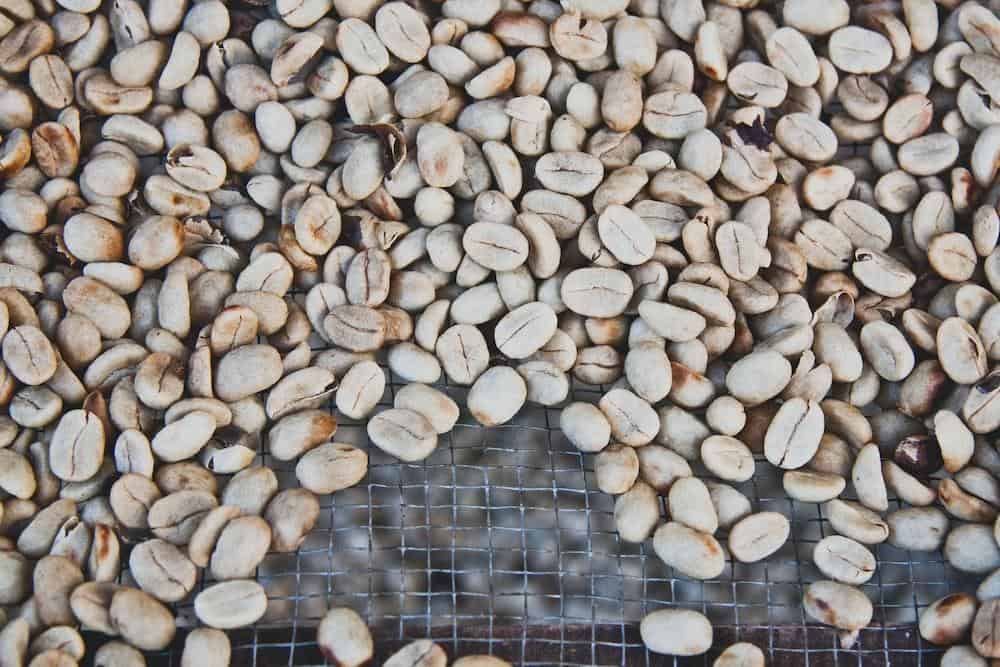Artisanal coffee, with its rich and complex flavors, has become the go-to choice for coffee connoisseurs around the world. From its carefully sourced beans to the meticulous brewing process, artisanal coffee represents a true craft in the coffee industry. In this article, we will delve into the captivating world of artisanal coffee and explore its allure for those who seek a truly exceptional cup of joe.
As the demand for high-quality and unique coffee experiences grows, artisanal coffee has emerged as a favorite among discerning coffee lovers. But what exactly sets it apart? Artisanal coffee goes beyond just being a beverage; it is an art form that embodies passion, expertise, and careful attention to detail.
In this article, we will take a journey into understanding the essence of artisanal coffee and its significance in the industry. We will uncover the meticulous craftsmanship behind the perfect brew, exploring everything from sourcing and roasting techniques to different brewing methods that elevate the experience. Additionally, we will explore the culture surrounding artisanal coffee, including rituals and appreciation within the community.
So join us as we embark on an exploration of artisanal coffee – a world full of distinct flavors, enticing aromas, and an unwavering commitment to quality. Whether you are already a connoisseur or simply intrigued by this remarkable brew, there is something for everyone to discover in this captivating realm of artisanal coffee.
Understanding the Essence
Artisanal coffee, often referred to as specialty or craft coffee, has become increasingly popular among coffee connoisseurs. But what sets this type of coffee apart from the mass-produced options found in most grocery stores? Understanding the essence of artisanal coffee is crucial to truly appreciating its significance in the coffee industry.
So, what exactly is artisanal coffee? Artisanal coffee refers to a small batch, handcrafted approach to sourcing, roasting, and brewing coffee beans. Unlike commercially produced coffee, artisanal coffee focuses on quality and flavor over quantity and consistency. It emphasizes the unique characteristics of different regions and individual lots of beans.
One key aspect of artisanal coffee is its traceability. Each bag tells a story of where the beans were grown and how they were processed. This traceability allows consumers to have a deeper connection with their cup of coffee by knowing exactly where it came from. Additionally, the meticulous craftsmanship involved in producing artisanal coffee ensures that each bean is carefully roasted and brewed to bring out its full potential in terms of flavor and aroma.
Considering these defining characteristics, it is evident why artisanal coffee holds great significance in the coffee industry. It provides an alternative to mass-produced coffees that often prioritize consistency at the expense of quality. Artisanal coffee celebrates the unique flavors and nuances that each region and farm can offer. By elevating the experience for consumers through top-quality beans and skilled craftsmanship, it raises the standards for what a truly exceptional cup of coffee can be.
| Characteristics | Significance |
|---|---|
| Small batch, handcrafted approach | Emphasizes quality over quantity |
| Traceability | Provides a deeper connection with the coffee |
| Unique flavors and aromas | Celebrates the diversity of coffee origins |
| Meticulous craftsmanship | Ensures optimal flavor and aroma extraction |
| Elevates standards for exceptional coffee | Redefines consumer expectations |
The Artisanal Coffee Process
The Art of Coffee Roasting
One of the crucial steps in the artisanal coffee process is coffee roasting. Roasting is where the green coffee beans are transformed into the aromatic and flavorful beans that we associate with our favorite cup of coffee. This step requires precision, skill, and an understanding of how different factors such as temperature and time can affect the final result.
During the roasting process, the beans go through various stages which include drying, browning, and development of complex flavors. The length and temperature of the roast can greatly impact the characteristics of the coffee, such as its acidity, body, and sweetness. Artisanal coffee roasters carefully monitor these stages to ensure that each batch is roasted to perfection.
The Science behind Brewing
Once the beans are roasted, they must be brewed to extract their flavors fully. Artisanal coffee brewing involves a delicate balance between various factors such as grind size, water temperature, brew time, and ratio of coffee to water. Each brewing method has its unique set of requirements to achieve optimal extraction.
Some popular brewing methods among artisanal coffee enthusiasts include pour-over, French press, AeroPress, and espresso. Each method offers a distinct flavor profile that can highlight different aspects of a particular bean or blend. Coffee connoisseurs often experiment with different brewing methods to explore new flavors and aromas while appreciating the craftsmanship behind each cup.
Sustainability in Artisanal Coffee
Artisanal coffee also places a strong emphasis on sustainability throughout its process. From farm to cup, ethical practices are followed to ensure farmers receive fair compensation for their work while protecting both the environment and the quality of their product. Many artisanal coffees are sourced from single origin farms or small cooperatives where farmers have greater control over their practices.
Additionally, many artisanal coffee brands prioritize environmentally friendly packaging materials and advocate for sustainable farming practices. By supporting artisanal coffee, coffee connoisseurs not only embrace the flavors and craftsmanship but also contribute to a more ethical and sustainable coffee industry.
Overall, the artisanal coffee process is one that demands meticulous craftsmanship, attention to detail, and a deep passion for coffee. From roasting to brewing, every step is carefully executed to create the perfect brew that embodies the uniqueness and complexity of each bean. It is through this dedication that artisanal coffee captures the hearts of coffee connoisseurs and continues to provide a remarkable experience in every cup.
The Art of Sourcing
Introduction to the Sourcing Process
Sourcing high-quality coffee beans is a crucial step in the artisanal coffee process. Coffee connoisseurs understand that the journey of these beans, from farm to cup, greatly impacts the final flavor and overall experience. The sourcing process involves various stages and considerations, ensuring that only the finest beans are selected for artisanal coffee production.
Finding the Perfect Origin
One of the first steps in the sourcing process is identifying the origin of the coffee beans. Artisanal coffee often emphasizes single-origin beans, which are sourced from a specific region or farm known for producing exceptional coffees. These origins could be in diverse countries such as Colombia, Ethiopia, Costa Rica, or Guatemala. Each origin brings unique characteristics to their beans, allowing coffee connoisseurs to explore different flavor profiles and experiences.
To select the perfect origin, artisanal coffee producers establish direct relationships with farmers or rely on trusted intermediaries who work closely with small-scale farms. This direct trade model not only ensures a sustainable livelihood for farmers but also fosters transparency and traceability throughout the sourcing process.
Precise Bean Selection and Quality Control
Once an origin has been determined, meticulous bean selection takes place. Skilled professionals evaluate each batch of coffee beans based on criteria such as size, shape, color, density, and uniformity. Only those that meet strict quality standards make it through this rigorous selection process.
Quality control measures play a vital role in maintaining consistency and excellence in artisanal coffee. Various factors such as altitude, climate, soil composition, picking methods, and processing techniques affect the flavor profile of coffee beans. Therefore, stringent quality control protocols ensure that only beans that showcase desirable characteristics make their way into artisanal blends.
Additionally, sustainable sourcing practices have become an essential aspect of artisanal coffee production. Many brands prioritize working with farms that promote environmentally friendly practices, including organic cultivation methods, fair worker wages, and community support. This commitment to sustainability resonates with coffee connoisseurs who value both the taste of their brew and the positive impact it has on the environment and communities involved.
By meticulously selecting coffee beans from ideal origins and employing rigorous quality control measures, artisanal coffee producers ensure that every cup of their brew tells a unique story from its journey across the globe. In the next section, we will delve into tasting the magic of artisanal coffee by exploring its distinct flavors and aromas.
Tasting the Magic
Artisanal coffee is renowned for its exceptional flavors and aromas that tantalize the taste buds of coffee connoisseurs. One of the main reasons why artisanal coffee stands out from mass-produced coffee is the attention to detail in every step of the production process, starting from sourcing high-quality beans to skillful roasting techniques.
These efforts result in a wide array of unique flavors and aromas that can be discovered and savored by those who appreciate a truly exceptional cup of coffee.
In artisanal coffee, each bean has its own distinct flavor profile. The flavor profiles can range from fruity and floral to nutty or chocolatey, depending on factors such as the type of coffee bean, growing region, altitude, soil composition, and harvesting techniques. Additionally, the way the beans are processed after harvesting also contributes to their unique flavors. Methods like washed processing, natural processing, or honey processing all have a significant impact on the final taste of the brew.
Aromas also play an important role in artisanal coffee. When freshly brewed, a cup of artisanal coffee reveals a complex aromatic profile that adds depth to the overall drinking experience. The aromas can vary from earthy and woody notes to hints of citrus or berries. The intensity and complexity of these aromas often depend on factors such as the roast level and brewing method used.
To truly delve into the unique flavors and aromas found in artisanal coffee, it is recommended to approach it with an open mind and develop a discerning palate. Exploring different origins, blends, brewing methods, and even pairing suggestions can help uncover new dimensions in this sensory journey.
| Flavor Profile | Description |
|---|---|
| Fruity | Notes of berries, citrus fruits, or tropical fruits. |
| Chocolatey | Rich and indulgent flavors reminiscent of dark chocolate or cocoa. |
| Nutty | Aromas and flavors of roasted nuts like almonds or hazelnuts. |
| Floral | Delicate and fragrant with hints of flowers like jasmine or lavender. |
| Earthy | Mildly rustic with earthy undertones that can resemble spices or herbs. |
The Role of Roasting
Roasting is a crucial step in the process of transforming coffee beans into the flavorful and aromatic brew that connoisseurs crave. This section will explore the role of roasting in unleashing the true potential of artisanal coffee through skillful techniques.
The Difference Roasting Makes
The process of roasting coffee beans not only transforms their raw form into a consumable product but also plays a significant role in developing the unique characteristics and flavors that make artisanal coffee so special. During roasting, heat is applied to the beans, causing numerous chemical changes to occur within them.
The most notable change is the Maillard reaction, which involves the browning of sugars and amino acids present in the beans and results in the development of complex flavors and aromas.
Mastering Roasting Techniques
Artisanal coffee roasters pride themselves on their expertise when it comes to roasting techniques. They understand that slight variations in temperature, duration, and intensity can greatly affect the final flavor profile of the coffee. There are various roast levels to consider, ranging from light to dark, each resulting in different taste profiles.
- Light Roast: Lightly roasted beans typically retain more acidity and showcase vibrant and floral flavors.
- Medium Roast: Medium roasted beans strike a balance between acidity and body, offering a well-rounded taste profile.
- Dark Roast: Dark roasted beans have a bold flavor with less acidity but prominent bitterness.
In addition to varying roast levels, artisanal coffee roasters also experiment with different techniques such as blending multiple bean varieties or utilizing different types of equipment like drum roasters or hot air roasters. This allows them to carefully control every aspect of the roasting process and craft unique flavors that cater perfectly to the preferences of coffee connoisseurs.
The Importance of Freshly Roasted Coffee
To fully appreciate the potential of artisanal coffee, it is crucial to prioritize freshness. After the roasting process, coffee beans release carbon dioxide gas for a period of time known as degassing. During this time, the flavors and aromas continue to develop and reach their peak. Therefore, freshly roasted coffee should be consumed within a few weeks to capture its fullest potential.
For those who truly appreciate artisanal coffee, investing in a home coffee grinder is recommended. By grinding beans just before brewing, connoisseurs can experience the freshest flavor possible. This small step ensures that every cup of artisanal coffee is a delicious and rewarding experience, offering a glimpse into the skillful craftsmanship that goes into roasting these cherished beans.
Brewing like a Pro
One of the hallmarks of artisanal coffee is the attention to detail in the brewing process. Coffee connoisseurs understand that the choice of brewing method and equipment can greatly impact the taste and quality of their brew. There are several different methods that can be used to brew artisanal coffee, each with its own unique characteristics and flavor profiles.
One popular method among coffee enthusiasts is pour-over brewing. This method involves pouring hot water over fresh coffee grounds in a slow, controlled manner, allowing the water to extract all the flavors from the beans. Pour-over brewers, such as the Hario V60 or Chemex, are commonly used for this technique. The result is a clean, bright cup of coffee with pronounced flavors.
Another brewing method that has gained popularity in recent years is the AeroPress. This unique piece of equipment uses air pressure to force hot water through ground coffee, resulting in a rich, concentrated brew similar to an espresso shot. The versatility of the AeroPress allows for experimentation with different grind sizes and brewing times, making it a favorite among home baristas.
For those who prefer a more hands-off approach, automatic drip machines can also be used to brew artisanal coffee. While some may argue that these machines sacrifice flavor for convenience, there are high-quality options available that allow for precise temperature control and extraction. When using a drip machine, it’s important to choose freshly roasted beans and grind them just before brewing for best results.
In addition to these methods, there are other techniques such as French press brewing and cold brew that offer distinct flavors and textures. Ultimately, the choice of brewing method comes down to personal preference and desired flavor profile. With so many options available, exploring different methods and experimenting with various brewing equipment can elevate your artisanal coffee experience and help you discover new nuances in your favorite beans.
The Culture of Appreciation
Artisanal coffee is more than just a beverage, it is a lifestyle that brings together a community of coffee connoisseurs who deeply appreciate the craft and artistry behind each cup. The culture of appreciation surrounding artisanal coffee revolves around savoring the unique flavors, aromas, and experiences that this exceptional brew offers. Coffee lovers not only seek out the finest beans but also embrace the rituals associated with brewing and enjoying their favorite cup of coffee.
One ritual that is highly valued in the artisanal coffee community is the “cupping” process. Cupping involves evaluating different coffees side by side to discern flavors, aromas, acidity, body, and overall quality. This allows coffee connoisseurs to develop their palates and refine their ability to identify subtle nuances in taste. Cupping sessions often take place at specialty coffee shops or roasteries where enthusiasts can gather to share their knowledge and passion for artisanal coffee.
Another important ritual within the artisanal coffee community is the act of careful preparation and brewing. Coffee connoisseurs understand that achieving the perfect brew requires attention to detail and precision.
Whether it’s using a manual pour-over method, an espresso machine, or even a siphon brewer, each brewing technique has its own set of dedicated followers within this community. This emphasis on craftsmanship extends beyond just the equipment but also includes factors such as water temperature, grind size, and extraction time.
Partaking in these rituals creates a sense of camaraderie among artisanal coffee enthusiasts. They come together not only to enjoy a shared passion but also to exchange knowledge, techniques, and recommendations. Local events such as latte art competitions or specialty coffee festivals provide opportunities for members of the community to connect with one another and celebrate their love for quality coffee.
The culture of appreciation that surrounds artisanal coffee is not only about the enjoyment of a delicious cup but also about valuing the intricate processes and craftsmanship involved in creating this exceptional brew. It is this shared sense of reverence for coffee that brings the community together and ensures its thriving existence. As more individuals discover the allure of artisanal coffee, this culture of appreciation will continue to grow, enriching the experiences and rituals associated with this unique beverage.
An Artisanal Coffee Journey
Coffee connoisseurs seeking the perfect brew often embark on an artisanal coffee journey, exploring the multitude of exceptional coffee shops and brands that have paved the way for this beloved beverage. These establishments and companies that specialize in artisanal coffee not only focus on quality beans but also embrace the art of crafting a truly outstanding cup of coffee.
From independent local cafes to well-known roasters, these establishments have built a loyal following and continue to shape the artisanal coffee scene.
One cannot begin an exploration of artisanal coffee without mentioning iconic coffee shops such as Intelligentsia, Blue Bottle, and Stumptown Coffee Roasters. These establishments have become synonymous with the artisanal coffee movement, garnering a reputation for their commitment to sourcing exceptional beans and utilizing precise brewing methods.
Intelligentsia, known for its direct trade practices and attention to detail in their brewing techniques, has helped define what it means to be an artisanal coffee shop. Blue Bottle’s emphasis on freshness extends from their beans to their carefully curated menu offerings, while Stumptown Coffee Roasters has set standards for quality control through their meticulous roasting process.
In addition to these trailblazers, there is also a growing number of independent local coffee shops that are making waves in the world of artisanal coffee. These hidden gems offer unique experiences catered to specific communities and showcase regional flavors and techniques. With a fervent dedication to showcasing locally-sourced beans or promoting sustainability initiatives, these small-scale establishments bring a personal touch that resonates with passionate coffee lovers.
As the specialty coffee scene continues to evolve, more brands are emerging with innovative approaches to brewing methodologies or sourcing strategies. This evolution has given rise to new players who strive to push boundaries and challenge conventions surrounding brewing artistry.
These forward-thinking brands experiment with new processing methods like natural anaerobic fermentation or unique flavor profiles by blending various bean origins in creative ways. By providing consumers with diverse options, these coffee brands continue to foster a culture of exploration and appreciation among coffee connoisseurs.
The Future of Artisanal Coffee
As the world of coffee continues to evolve, the future of artisanal coffee looks promising. The increasing interest and demand for high-quality, handcrafted brews have paved the way for exciting trends and innovations that will shape the coffee industry in the coming years.
One notable trend is the rise of sustainable practices in artisanal coffee production. Coffee connoisseurs are becoming more conscious of the environmental and ethical impact of their coffee choices, leading to a demand for beans that are sourced responsibly.
This has resulted in an emphasis on fair trade and organic certifications, as well as initiatives to support local farmers and promote biodiversity in coffee growing regions. Going forward, we can expect to see even more emphasis on sustainability, with efforts such as carbon-neutral coffee production and innovative recycling programs.
Another aspect that will shape the future of artisanal coffee is technology. From precision roasting machines to advanced brewing equipment, technology has made its mark on the industry. This not only ensures consistency and quality in each cup but also opens up opportunities for further experimentation and customization.
In addition, advancements in online platforms have made it easier for small-scale roasters and coffee shops to connect with consumers directly and create a personalized experience. With the help of data analytics and machine learning algorithms, these platforms can provide tailored recommendations based on individual preferences, enhancing the overall artisanal coffee journey.
Lastly, there is a growing movement towards collaboration within the artisanal coffee community. Brands are increasingly partnering with one another to create unique blends or showcase single-origin coffees from specific regions.
This collaborative spirit extends beyond just brands – it also encompasses baristas, roasters, and enthusiasts who come together to share knowledge and celebrate their love for specialty coffee. By fostering this sense of community through events such as competitions or educational workshops, artisans can continue pushing boundaries and finding new ways to elevate their craft.
In conclusion, the future of artisanal coffee holds great promise for both coffee connoisseurs and the coffee industry as a whole. With a focus on sustainability, advancements in technology, and a spirit of collaboration, we can expect to see exciting trends and innovations emerge in the years to come.
Whether it’s exploring new flavor profiles or supporting ethical practices, the world of artisanal coffee will continue to captivate and delight enthusiasts around the globe. So raise your cup and toast to the future – one that is sure to be filled with exceptional brews and endless possibilities.
Frequently Asked Questions
What is the difference between chain stores and artisan coffee shops?
The main difference between chain stores and artisan coffee shops lies in their approach to coffee production and service. Chain stores are typically large-scale commercial establishments that prioritize consistency and efficiency. They often offer a standardized menu and use mass-produced beans to ensure uniformity across all locations.
In contrast, artisan coffee shops are characterized by their emphasis on craftsmanship and quality. They often source specialty beans, carefully roast them in-house, and brew each cup to order. Artisan coffee shops tend to have a more personalized approach, offering unique flavor profiles and creating an atmosphere that fosters community engagement.
What crafted coffee means?
Crafted coffee refers to the meticulous process of producing a cup of coffee with careful attention to detail and craftsmanship. It emphasizes the artistry involved in every step: from selecting high-quality beans, skillfully roasting them to enhance specific flavors, ensuring precise brewing methods for optimal taste extraction, to serving the final product with attention to presentation and customer experience.
Crafted coffee is not just about getting your daily caffeine fix but rather savoring a thoughtfully prepared beverage that captures the essence of the beans’ origin and showcases the dedication of the skilled coffee artisans behind it.
What is the difference between artisanal coffee and specialty coffee?
While both artisanal coffee and specialty coffee share a focus on quality, there is a subtle difference between the two terms. Artisanal coffee refers more broadly to the traditional techniques used in crafting high-quality coffee, including hand-roasting, small-batch production, or curated brewing methods that highlight flavor nuances.
Specialty coffee, on the other hand, specifically refers to Arabica beans scoring 80 points or above according to industry grading standards set by organizations like the Specialty Coffee Association (SCA). Specialty coffees are usually grown in ideal climates with meticulous farming practices that yield distinct flavors while also respecting sustainability principles.
How is artisan coffee made?
The process of making artisan coffee involves several crucial steps where attention is paid meticulously to every detail. It begins with selecting high-quality green coffee beans from different parts of the world, focusing on factors such as origin, variety, and freshness. These beans are then carefully roasted in small batches to develop specific flavor profiles that capture the best attributes of each bean type.
After roasting, the coffee is ground just before brewing to preserve aroma and freshness. Finally, artisan coffee is brewed using various methods like pour-over, espresso, or French press to ensure optimal extraction of flavors and a well-balanced cup.
What is considered artisan coffee?
Artisan coffee encompasses a wide range of characteristics that distinguish it from mass-produced options. Firstly, artisan coffee often uses specialty-grade Arabica beans known for their superior taste and unique flavor notes. Unlike commodity-grade coffee found in supermarkets or chain stores, which may prioritize quantity over quality, artisan coffee prioritizes sourcing ethically produced beans from specific regions worldwide.
Furthermore, artisan coffee is typically roasted in-house by skilled roasters who take pride in crafting bespoke blends and single-origin offerings. The aim is to highlight the nuanced flavors inherent in each batch of beans while showcasing distinctive regional characteristics. Ultimately, what defines an artisan coffee is a combination of careful selection, expert roasting techniques, precise brewing methods, and an overall commitment to delivering an exceptional sensory experience to the discerning coffee lover.

